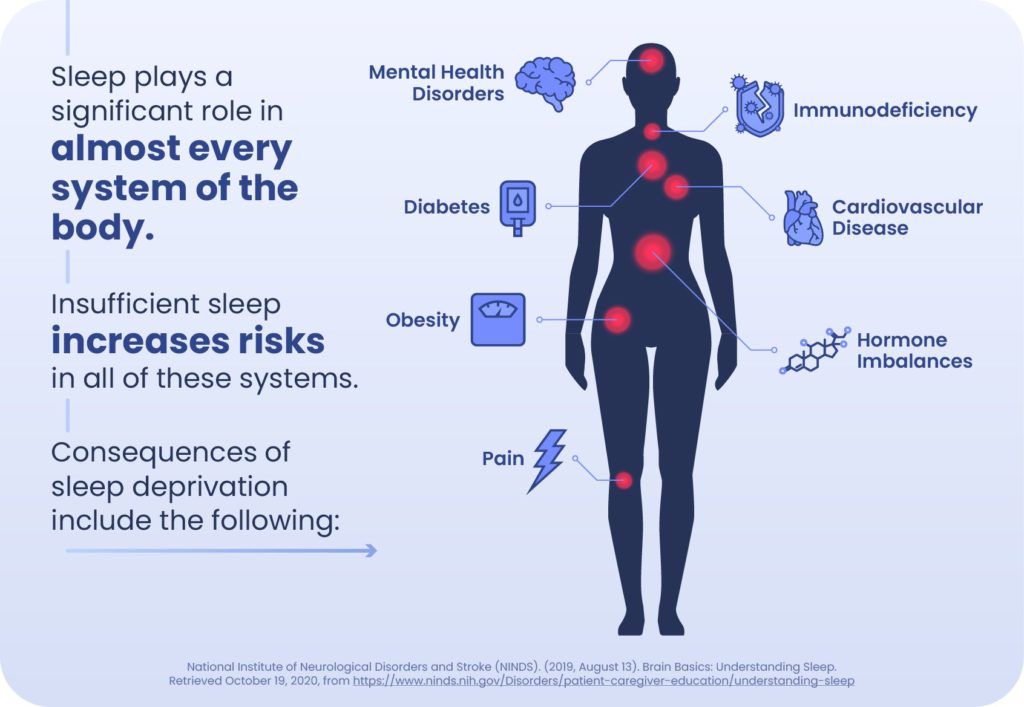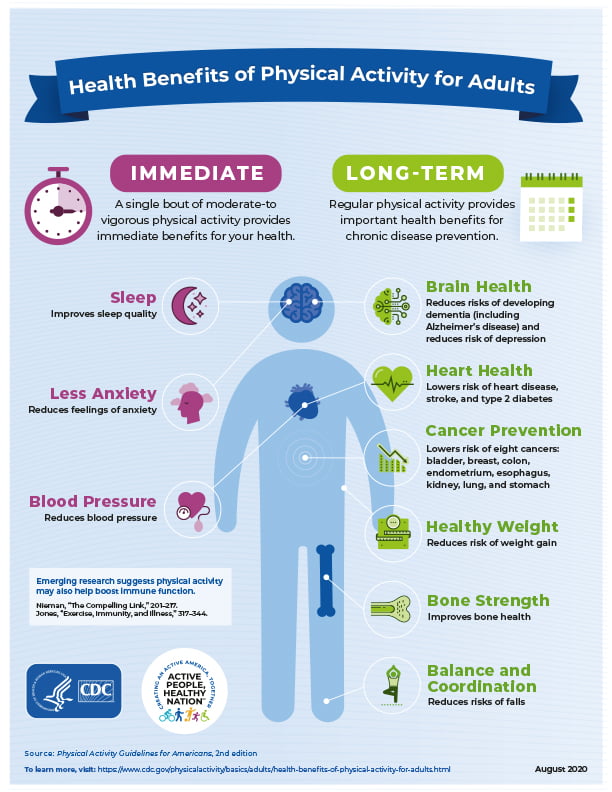Ah, sleep. It’s that magical time when we drift off into dreamland, recharging our bodies and minds for the adventures that await us in the waking world. But have you ever stopped to think about just how much sleep affects your lifestyle? Well, my friend, you’re about to find out!
Let’s dive into the fascinating world of sleep and discover the profound impact it has on every aspect of our lives. From our physical health to our mental well-being, our productivity to our relationships, sleep plays a role that is far more crucial than we might imagine. So, grab your favorite blanket, snuggle up, and get ready to uncover the secrets of how sleep truly affects your lifestyle.
Now, before we embark on this journey, I want to make sure you’re aware of something. This article isn’t going to be your typical snooze-fest filled with scientific jargon and sleep-inducing facts. Oh no, my friend! We’re going to explore this topic in a fun and engaging way that will keep you eagerly reading until the very end. So, buckle up and get ready for a wild ride through the world of sleep and its impact on your lifestyle. Let’s go!

How Does Sleep Affect Your Lifestyle?
Sleep is an essential part of our daily routine, yet many of us underestimate its importance. It not only allows our bodies to rest and recharge, but it also plays a crucial role in our overall health and well-being. The quality and quantity of sleep we get can have a significant impact on our lifestyle and daily functioning. In this article, we will explore the various ways in which sleep affects our lifestyle and why it is important to prioritize a good night’s rest.
The Physical Effects of Sleep on Your Lifestyle
When we do not get enough sleep, our bodies suffer in numerous ways. One of the most noticeable physical effects of sleep deprivation is fatigue. Lack of sleep can leave us feeling tired, sluggish, and lacking in energy, which can affect our productivity and performance throughout the day. It can also impair our motor skills and coordination, increasing the risk of accidents and injuries.
In addition to fatigue, sleep deprivation can weaken our immune system, making us more susceptible to illnesses and infections. It can also contribute to weight gain, as it disrupts the balance of hormones that regulate appetite and metabolism. Studies have shown that inadequate sleep increases the levels of ghrelin, a hormone that stimulates hunger, while decreasing the levels of leptin, a hormone that signals fullness. This imbalance can lead to overeating and weight gain over time.
The Impact of Sleep on Mental Well-being
Sleep plays a vital role in maintaining our mental health and emotional well-being. When we are sleep deprived, our cognitive functions, such as attention, concentration, and memory, are significantly impaired. This can affect our ability to learn, solve problems, and make decisions effectively. It can also hinder our creativity and innovation, making it challenging to think outside the box and come up with new ideas.
Furthermore, sleep deprivation can have a profound impact on our mood and emotions. It can increase the risk of developing mental health disorders such as depression and anxiety. Lack of sleep can make us more irritable, moody, and prone to mood swings. It can also affect our ability to regulate emotions, making us more reactive and less able to cope with stressors. Over time, chronic sleep deprivation can have a detrimental effect on our overall psychological well-being.
The Role of Sleep in Your Daily Performance
Sleep is not just a passive state of rest; it is an active process that allows our bodies and minds to recover and prepare for the day ahead. Adequate sleep is crucial for optimal performance in various aspects of our lives, including work, academics, and physical activities.
In the workplace, sleep deprivation can have a significant impact on productivity and job performance. It can impair our ability to concentrate, solve problems, and make decisions efficiently. It can also affect our communication skills, making it challenging to express ourselves clearly and effectively. Moreover, lack of sleep can decrease our motivation and creativity, hindering our ability to perform at our best.
Similarly, in academic settings, sleep plays a vital role in learning and memory consolidation. When we sleep, our brains process and consolidate the information we have learned during the day, making it easier to recall and apply the knowledge later on. Inadequate sleep can impair these cognitive processes, making it harder to retain information and perform well in exams and assignments.
The Importance of Prioritizing Sleep
Given the significant impact of sleep on our lifestyle and daily functioning, it is crucial to prioritize and optimize our sleep habits. Here are some tips to help you get better sleep and improve your overall lifestyle:
1. Stick to a consistent sleep schedule: Go to bed and wake up at the same time every day, even on weekends. This helps regulate your body’s internal clock and promotes better sleep.
2. Create a relaxing bedtime routine: Engage in activities that promote relaxation and signal to your body that it’s time to wind down. This can include reading a book, taking a warm bath, or practicing relaxation techniques.
3. Create a sleep-friendly environment: Make sure your bedroom is dark, quiet, and at a cool temperature. Use comfortable bedding and invest in a supportive mattress and pillows.
4. Limit exposure to electronic devices before bed: The blue light emitted by screens can interfere with your body’s production of melatonin, a hormone that regulates sleep. Avoid using electronic devices for at least an hour before bedtime.
5. Avoid stimulants and heavy meals close to bedtime: Caffeine, nicotine, and large meals can interfere with your ability to fall asleep and stay asleep. Limit your consumption of these substances, especially in the evening.
By prioritizing sleep and implementing healthy sleep habits, you can improve your overall lifestyle and well-being. Remember, quality sleep is not a luxury; it is a necessity for a healthy and fulfilling life.
Key Takeaways
- Sleep affects your mood and emotions, making you feel more positive and happy.
- Getting enough sleep improves your memory and concentration, helping you perform better in school or work.
- Poor sleep can lead to weight gain and increase your risk of developing chronic diseases like diabetes and heart disease.
- Sleep deprivation can make you more prone to accidents and affect your overall productivity and performance.
- Establishing a regular sleep routine and creating a sleep-friendly environment can improve the quality of your sleep and positively impact your lifestyle.
Frequently Asked Questions
How does lack of sleep affect your lifestyle?
A lack of sleep can have a significant impact on your lifestyle. When you don’t get enough sleep, you may experience fatigue, difficulty concentrating, and decreased productivity. This can affect your performance at work or school, as well as your ability to engage in social activities or hobbies. Additionally, lack of sleep can lead to mood swings, irritability, and increased stress levels, which can strain relationships and overall well-being.
Furthermore, insufficient sleep has been linked to various health problems, including an increased risk of obesity, heart disease, and diabetes. It can also weaken your immune system, making you more susceptible to illnesses. Overall, not getting enough sleep can negatively affect your physical, mental, and emotional well-being, ultimately impacting your overall lifestyle.
How does sleep quality affect your lifestyle?
The quality of your sleep plays a crucial role in your lifestyle. When you consistently experience poor sleep quality, you may wake up feeling groggy, tired, and unrefreshed. This can lead to daytime sleepiness, difficulty concentrating, and decreased cognitive function. As a result, your productivity and performance throughout the day may suffer, impacting your work, studies, or daily activities.
Poor sleep quality is also associated with an increased risk of mood disorders, such as depression and anxiety. It can affect your emotional well-being, making you more prone to irritability, mood swings, and increased stress levels. Additionally, inadequate sleep quality can impair your immune function, making you more susceptible to illnesses and affecting your overall health. Therefore, ensuring good sleep quality is essential for maintaining a healthy and balanced lifestyle.
How does sleep duration affect your lifestyle?
The duration of your sleep can significantly impact your lifestyle. Getting an adequate amount of sleep is essential for optimal functioning. When you consistently get insufficient sleep, you may experience daytime sleepiness, lack of energy, and decreased alertness. This can make it challenging to stay focused and perform well in your daily activities.
Furthermore, inadequate sleep duration has been linked to various health problems, including obesity, diabetes, and heart disease. It can also weaken your immune system, making you more susceptible to infections and illnesses. Additionally, insufficient sleep duration can negatively affect your mood, leading to increased stress levels, irritability, and difficulty managing emotions. To maintain a healthy lifestyle, it is crucial to prioritize and ensure you get enough sleep each night.
How does sleep affect your physical health?
Sleep plays a vital role in maintaining your physical health. During sleep, your body undergoes important processes that promote restoration and repair. Adequate sleep is essential for muscle growth, tissue repair, and hormone regulation. It allows your body to recover and rejuvenate, supporting overall physical well-being.
Insufficient sleep can negatively impact your physical health in various ways. It increases the risk of obesity as it disrupts hormone regulation, leading to changes in appetite and metabolism. Lack of sleep has also been associated with an increased risk of heart disease, high blood pressure, and diabetes. Additionally, inadequate sleep can weaken your immune system, making you more susceptible to infections and illnesses. Therefore, prioritizing sufficient and quality sleep is crucial for maintaining optimal physical health.
How does sleep affect your mental health?
Sleep and mental health are closely interconnected. Quality sleep is essential for maintaining optimal cognitive function, emotional well-being, and overall mental health. When you get enough sleep, your brain can process information, consolidate memories, and regulate emotions effectively.
On the other hand, insufficient sleep can impair cognitive function, making it difficult to concentrate, learn, and remember information. It can also contribute to the development of mental health disorders, such as depression and anxiety. Lack of sleep can lead to increased irritability, mood swings, and decreased ability to cope with stress. Inadequate sleep has also been associated with an increased risk of developing psychiatric conditions.
In summary, sleep plays a crucial role in maintaining optimal mental health. Prioritizing good sleep habits and ensuring sufficient sleep duration and quality can help support your overall well-being and mental health.

How lack of sleep affects health and tips for a good night’s rest
Final Summary: The Impact of Sleep on Your Lifestyle
When it comes to living a healthy and fulfilling life, sleep plays a crucial role that should not be underestimated. Throughout this article, we’ve explored the various ways in which sleep affects your lifestyle, and the findings are truly eye-opening. From the impact on your physical health to its influence on your mental well-being and cognitive abilities, sleep has a profound effect that extends far beyond simply feeling rested.
First and foremost, sleep is essential for maintaining a strong and resilient body. It is during sleep that our cells repair and regenerate, allowing our muscles to recover and grow. Without sufficient sleep, our immune system weakens, making us more susceptible to illness and disease. Additionally, research has shown that lack of sleep can lead to weight gain, as it disrupts the hormones responsible for regulating appetite. So, if you’re striving for a healthy and fit lifestyle, make sure to prioritize quality sleep.
But the impact of sleep goes beyond physical health. It also plays a significant role in our mental and emotional well-being. Adequate sleep is crucial for maintaining optimal cognitive function, including memory, concentration, and problem-solving abilities. It helps us process and retain information, making it easier to learn and perform tasks effectively. On the other hand, sleep deprivation can lead to mood swings, irritability, and even mental health disorders such as anxiety and depression. So, if you want to be at the top of your game,





